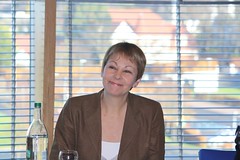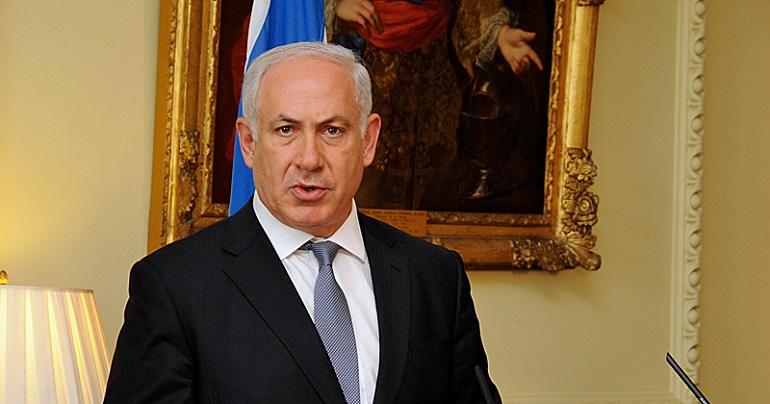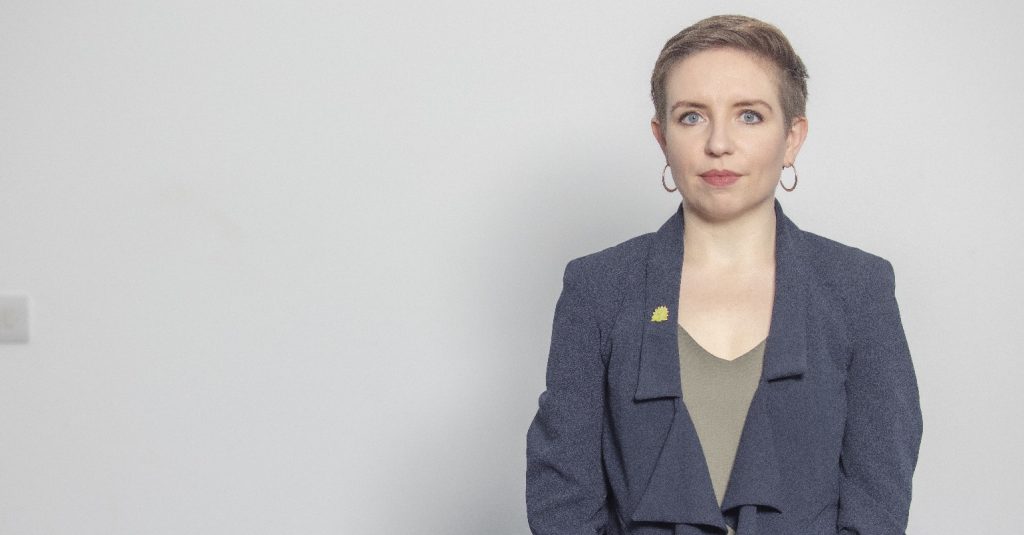If the Planet had Been a Bank it Would Have Been Saved Years Ago – Scottish Greens Conference Day 2
The second and final day of Scottish Green Party Conference was marked by two fantastic speeches, and two debates on Greens’ participating in coalitions. The speeches one by Caroline Lucas and one by Andy Wightman were stirring and sent everyone away thoroughly inspired. The debates provided an interesting insight into the party’s hopes and fears for the coming year.

Copyright Callum MacLellan Photograpy: http://callummaclellan.zenfolio.com/
The kicked off with a continuation of the AGM and then the Conference Motions. Here the main debate centred on Chris Ballance’s motion to prevent Green cooperation in a government based on the Conservative/Liberal Democrat cuts agenda. There were strongly made points about how important it might be for Greens to prevent a new government from making bad decisions, and therefore how important it was to have Greens in government. On the other side some argued that the enduring survival of the Green Party was too important to risk by entering a coalition in which Greens may be destroyed. The motion passed and means that Greens can clearly campaign on a platform against cuts.
Hopefully we can avoid has happened to Greens in Ireland, as discussed earlier on Bright Green. We returned to coalitions later with a constitutional motion on political cooperation.
We had a series of policy motions pass at this session as well, including my cherished motion on proper funding for voluntary sector, social enterprise and development trust organisations. No opposition to this made me very happy. I’m confident the Scottish Green Party is now at the cutting edge of voluntary sector funding. The substantial endowment for the sector will make a particular difference. We were also able to celebrate the birth of Phyl Meyer’s daughter, Evelyn by passing a motion he’d drafted with me to ensure our manifestos are drafted in good time. Particularly appropriate as Evelyn arrived pretty much on time…
Undoubtedly the most anticipated part of the conference came next. The address by Caroline Lucas created an electric atmosphere in the hall, and more than a few tears were shed. It’s a real testament to the work of Greens in Brighton and our sister party in England and Wales that Caroline was able to win in a very difficult election for smaller parties.
The speech was studded with memorable lines, and focused on the need to build a Green economy, not smash the public sector. Basing her analysis on the reality that climate change cannot be tackled without changing the economic system that caused the environmental crisis she set out a distinctive Green vision.
She said that if the planet had been a bank it would have been saved years ago. Supporting the Greens’ policy of a living wage, developing a manufacturing sector based on energy efficiency and renewables, she criticised the other parties for their failures in these areas. And particularly impressive was her call for a massive Green Jobs programme to tackle inequality and climate change at the same time.
She went on to praise People and Planet (formerly Third World First), where so many Greens have cut their teeth. She’d addressed their “Shared Planet” conference the day before, and spoke with great passion about the student activists there. So congratulations to Bright Green stalwart, Adam Ramsay, who organised the conference and to fellow editor Gary Dunion who also addressed the conference.
I went to the Justice for Palestine Centre fringe addressed by new Green member Hasan Nowarah. Hasan had been on the flotilla to Gaza, and along with prominent Scottish Free Gaza activist Theresa McDermott gave us a very moving account of what they’d experienced. The audience were shocked by the brutality of Israeli troops and that they stole all the convoy members’ personal belongings. It’s great to see Scottish Greens taking a stand on Palestine, having passed a motion to support the boycott, divestment and sanctions campaign on day one of conference.
I had a bit of a break instead of going to a second fringe, and a welcome catch-up with other Edinburgh Greens. Everyone seemed to be enjoying conference. And we were delighted to find that National Returning Officer Nigel Bagshaw finally has a photograph of himself on the internet – we’re wondering if he’ll be on the Twitter next…
After the break we had an excellent session with Kirsten Robb talking enthusiastically about winning in Central Scotland next year. It would be great to see her in Parliament. Patrick Harvie also spoke in this session.
We then moved onto the final session of business at the conference. It became clear early on that there was not going to be enough time to get through all the motions. This was particularly unfortunate as it meant no discussion of the homeopathy motions. It’s important we sort our position on this out as it is clear many party members are deeply uncomfortable with what exists.
The most significant debate in this session, and indeed in the whole conference, was on political cooperation. A motion moved by Mark Ballard and Maggie Chapman aimed to put members in control of any proposed political cooperation. The mechanisms outlined in the motion would ensure that any coalition required a weighted majority of both the top decision making body in the party, Party Council, and an Emergency General Meeting.
Despite strong contributions against the motion by Martin Ford and James Mackenzie, who both objected on the grounds that we should trust our elected representatives to make these deals, that the motion was weighted against entering a coalition, and that it would embarrass the party in the media if a deal was rejected. Kate Joester spoke to say that coalitions mean abandoning manifesto commitments, and this requires membership engagement.
A long pause followed as tellers counted the votes. It turned out that the motion reached the required two-thirds majority by one vote. Knife edge stuff.
We then moved onto Andy Wightman’s closing speech, which was simply terrific. Railing against the government’s cap of £26,000 in benefits to any one family he listed the extraordinary sums of public money paid to Scotland’s biggest landowners. He said “During the ten years from 2000 to 2009, the top 50 recipients of agricultural subsidy received £168 million – an average of over £3.3 million per farming business.” His rallying call was for a radical redistribution of land and land rights that would make us all richer. We went away well and truly rallied.






FWIW, James, I think your hyperbole in saying opposition is being “on the outside complaining” is unworthy of the achievements you’ve been involved in reaching with our MSPs so far!
It seems to me that your point, and Martin Ford’s, is that voters want us to exercise maximum power. I think voters want us to do the maximum of what we promised, and I don’t think the two necessarily mean the same thing. Sometimes the freedom to “complain”, to lead opposition, to introduce opposing amendments, is exactly the freedom we need to be maximally effective.
Pats is, of course, right, we should discuss what that good-enough coalition might be, but I thought I’d sling my twopennorth in.
I’m assuming we have the meetings called before the election, for a date after the election – then if they aren’t needed they fall – and if things are taking longer than expected they get adjourned for a few days
or would that be a bit too organised
One further thought – perhaps the discussion needs to move on, now that the mechanism is in place, to what that “right deal” might look like. Given the assumption that we’d be the minor party by quite some way, and the big differences we have with the larger parties on the economy, transport, energy, some aspects of social and justice policy etc, what are the positive opportunities?
Maybe it’s too early for specifics, but it would be good to have some discussion of the positive opportunities even if only in general terms.
Hmm, I think the experience of Greens in coalition has been rather more mixed than James suggests. Partipation in Government saw the Flemish Greens lose 60% of their votes and all its seats in 2003, the French Greens lost more than half their MPs in 2002 after joining the coalition with the PS and PCF and the Czech and Italian Greens have just been wiped out after periods in Government. The Irish Greens may well go the same way at the next election. That’s not to say that Greens shouldn’t go in government, just that you have to get the deal right…
James,
This is not, for me at any length, about preserving ideological purity. I just don’t see that either the arragement we’ve got in any way prevents the right deal, or that what we’ve agreed is in any way against coalitions.
It’s simply the case that some Green parties have done hasty and inappropriate deals and have ‘governed’ themselves out of existence. Therefore conference decided by a very clear margin that it was appropriate to put some checks on any possible deal.
Others have done well, but rarely in the Anglophone world where the press is much less tolerant of coalition governments.
If anything it strenghtens the hand of negotiators. And not signing up to a deal that will destroy the party seems eminently pragmatic to me.
Peter
I’m bothered by the assumptions still. The examples cited are the Czech Republic or Ireland, deals I wouldn’t have done, or the Lib Dems (and are we seriously of a view that a single person in the party would sign a deal resembling that?).
Now, the Finnish Greens are thriving in coalition with the right: although it’s another deal I would have voted against if I had been a member of their party, it is a valid counter-example to the idea that the risks are all about going in, not staying out.
Furthermore, the German and French Greens have proved themselves in government and are now thriving – do you really think the former would be in the extraordinary position they are without the period of cooperation with the SPD?
We don’t have time for the luxury of permanent opposition to preserve ideological purity. Caroline talked about idealism and pragmatism, and we need both. She also said we have 8-10 years to make the difference. The long game is not available to us.
Miles,
I think you’re right that Martin made that point too. I’ve changed the article to reflect that.
My feeling about your substantive point is that people will be sceptical about coalitions after what’s happened at Westminster. In that context parties that are seen to be democratic in their procedures will benefit. While people might not vote for parties that won’t go into government, they’ll be much more cautious around small parties that are too keen to get into coalitions.
Patrick – it’s a pity that some of the points you make didn’t get proposed as amendments, which would have allowed for a more rounded debate.
On your substantive point I think there’s no way round having an EGM. Party democracy requires that we put this to as broad a section of the membership for reasons James outlines above. That means these difficulties apply regardless of which system we chose.
James – the only parties I’ve ever seen being discredited for a generation are those that choose hasty coalition deals, not those that don’t. See the Alliance and NZ First in New Zealand and the Irish Greens as good examples. We’ll see something similar with the Lib Dems I suspect.
The debate brought out some important views about the possibility (and let’s just remember that it’s *only* a possibility) of coalition.
While I’m not convinced that we have the decision making process as well designed as it could be, it is at least now well defined – everyone knows what the rules will be.
I still worry that we’d leave ourselves under severe pressure of time if Council had to meet to debate the negotiated agreement and *then* call an EGM – remember there’s only 28 days between the election and the appointment of a First Minister. In practical terms, we’d really need to call the EGM as soon as we knew that we were to be involved in negotiations.
Maybe a Council meeting and EGM on the same day would be the only practical option, given that the two possibilities must be allowed for: (1) negotiation, then agreement by the party, then appointment of the FM; or (2) negotiation, then disagreement by the party, then time for the largest party to find an alternative route to government. Spending weeks negotiating a deal and then voting it down at the last minute would mean another election… I would hope we’d have more than a two thirds majority against that!
I’m going by memory here, and should probably let Martin speak for himself, but IIRC Martin’s objection was that the motion was strongly biased against entering coalitions. While entering a coalition is a great risk, it’s also a great opportunity, and creating a structural bias against doing so would be a mistake. Further, such an arrangement makes it look to outsiders like we don’t really want to be in Government, damaging our electoral chances.
It’s a view with which I have some sympathy. I voted for the motion (largely on the strength of Kate’s arguments), but I’d have preferred it if it were more evenly balanced.
James,
Sorry, I didn’t mean to misrepresent you. That’s what I’d taken in notes.
I disagree on the point about Council. Council has representation from under represented groups and a fair geographical spread. It’s representative in a way an EGM can never be. I think it’s important that the interests of smaller branches and under represented groups have the opportunity to influence this vote. It is, after all, a vital decision.
I’m not sure I heard anyone say we’d be better off on the outside complaining forever. I think there was a range of concerns, fairly expressed, that the deal had to be right.
If a coalition deal is right, we will have nothing to fear either from government, or from our own party.
Not a fair representation of my views. The double lock and massive super-majorities originally proposed could see our MSPs and Council-approved negotiating teams come back with a proposal which got the overwhelming support of the membership at an EGM but which was blocked by perhaps 6 or 7 members of Council with far less mandate.
That would be devastating. We’d lose credibility for a generation. The amendments were therefore a considerable improvement, but it’s still not perfect.
The prime difference here is emphasis. I’d rather our MSPs were in government making things better. Some contributions suggested we’d be better off on the outside complaining forever.
I don’t practically see why your hypothetical embarrassing situation would occur James. The EGM has to be called by council. If council hasn’t already backed the deal why would they call the EGM?
More generally, I don’t think we should be going into a deal if the party is particularly split on the issue. If we went into a coalition with almost half of council opposed I think that would be very damaging. Particularly if we then had to take decisions that went against our manifesto commitments. I think the only way we could maintain any cohesion and not fall apart in infighting would be if we all, almost unanimously, agreed that we should go into coalition. And I think if we’re offered a good deal the party will back it, because we don’t all want to be in opposition forever, we want to see our policies implemented. So I don’t think it wouldn’t be hard to get 2/3, or 3/4, of council to support a good deal.